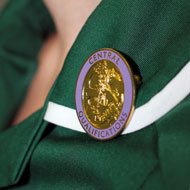Veterinary nursing consultation reminder

The consultation is due to close on November 30.
Nurses, veterinary surgeons, practice managers and others with an interest in the profession are being reminded to give their views in the Central Qualifications (CQ) Veterinary Nursing Consultation 2014, which is due to close on November 30.
The examination board and awarding organisation is conducting a consultation on all aspects of veterinary nurse training, qualifications and employment to help ensure that graduating students have the knowledge, competence and day one skills necessary for a successful career in veterinary nursing.
CQ is seeking the view of everyone with an interest in veterinary nursing and in particular is asking for views on the following:
▪ Content of the veterinary nursing syllabus
▪ Standards of examinations and assessments
▪ Duration of training programmes
▪ Practical competencies and day one skills required by employers
▪ Training practice and placement location requirements
▪ The role of step up qualifications
▪ Routes of entry to veterinary nursing
▪ Advanced / postgraduate qualifications and further training options for veterinary nurses
▪ Pathways for existing non-qualified nursing assistants
▪ Accessibility of training
▪ Employability
The feedback from the consultation will be used to maintain the quality and standards of veterinary nurse training, as well as set the standard for CQ's postgraduate qualification.
For further information or to submit your views, write to VN Consultation, Central Qualifications, Elmtree Business Park Elmswell IP30 9HR, e-mail vnconsultation@cqual.org or visit www.cqual.org to download a consultation form.



 The Federation of Independent Veterinary practices (FIVP) has announced a third season of its podcast, Practice Matters.
The Federation of Independent Veterinary practices (FIVP) has announced a third season of its podcast, Practice Matters.